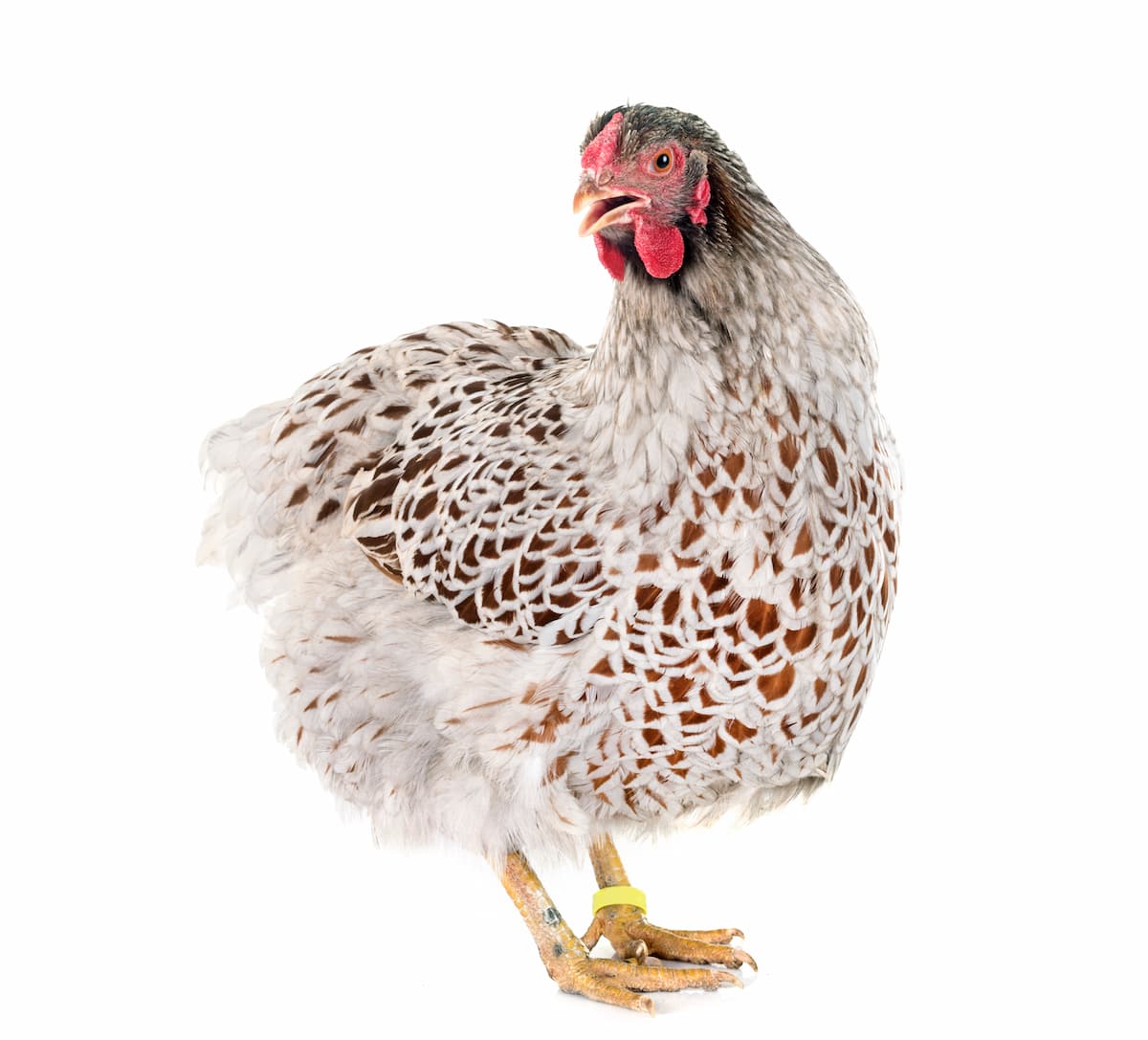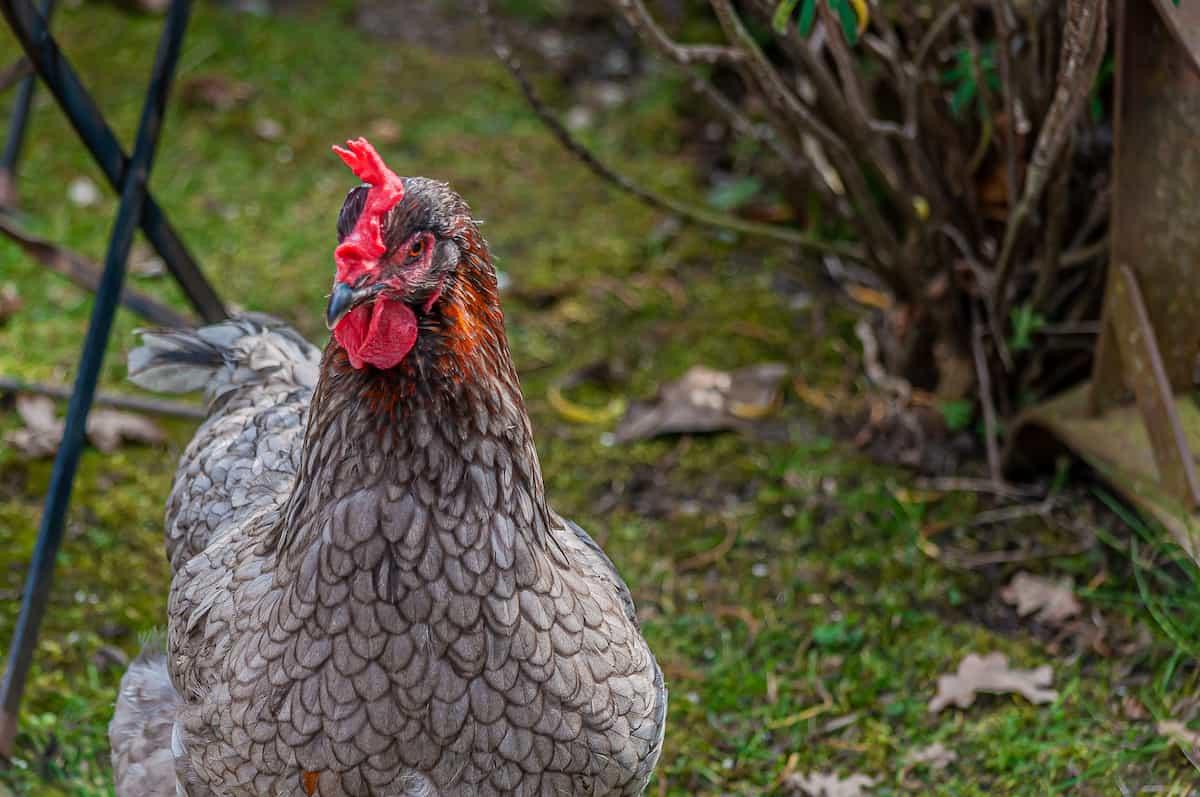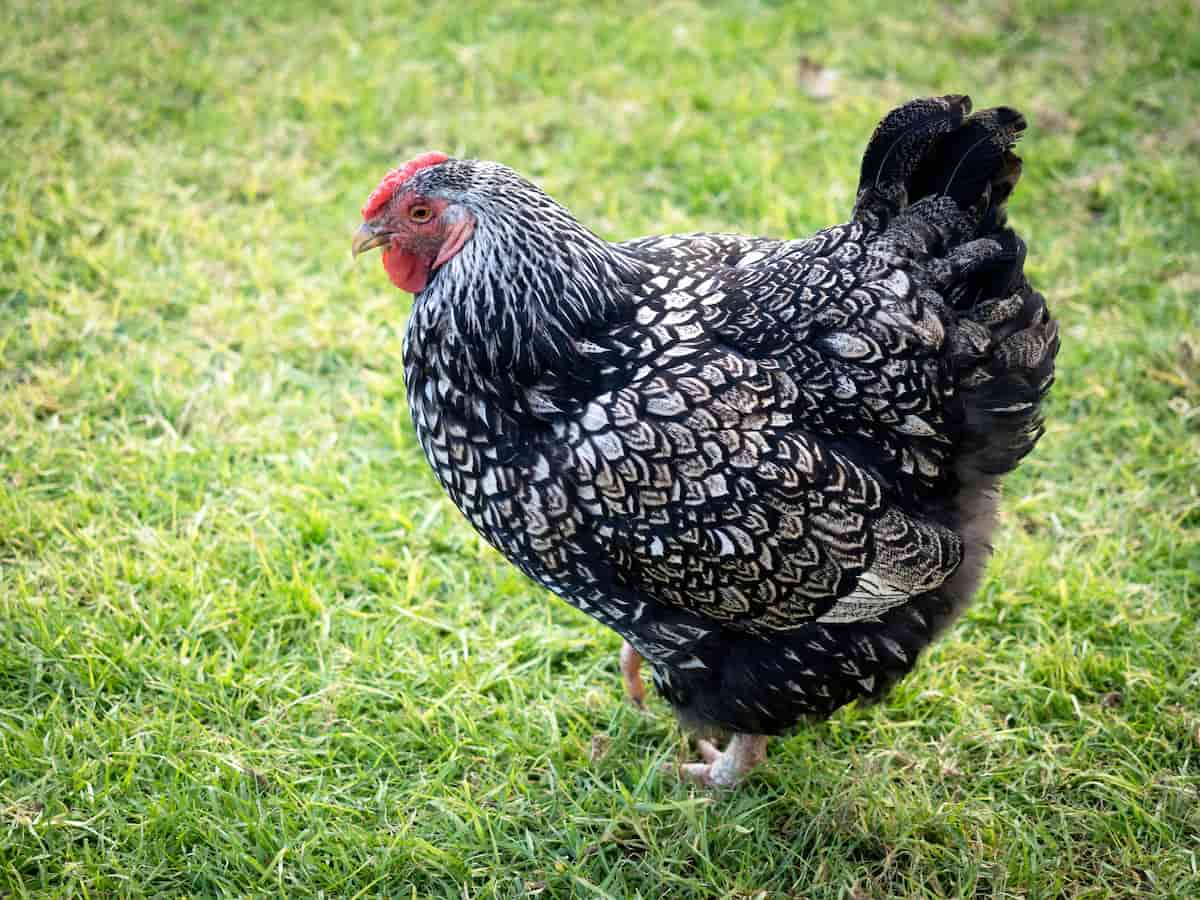The Wyandotte chicken is a breed of domestic chicken that originated in the United States. The Wyandotte chicken’s egg-laying ability makes them a popular choice among backyard chicken keepers who want a steady supply of fresh eggs. Providing adequate housing, fencing, nutrition, and health care is essential in keeping your flock happy and healthy.

Guide to Wyandotte Chicken Breed
Housing for Wyandotte Chickens
- Your coop should be sturdy and secure. You want to ensure your chickens are safe from predators like foxes or raccoons. Your coop should also provide adequate ventilation while offering protection from the elements.
- Additionally, Wyandottes require space to move around during the day. Keeping your coop clean is crucial for preventing disease and ensuring healthy chickens. Make sure you regularly change bedding material and clean any droppings or debris.
Characteristics of Wyandotte Chickens
- The breed is all-American, originating from New York State in the 19th century. The chicken’s plumage is well-known for its striking beauty; its double-laced feather pattern gives it a regal appearance.
- These birds come in various colors, such as silver laced, golden-laced, blue-laced, red, and many more.
- Another characteristic of this breed is their hardiness, making them cold-hardy and adaptable to different climates. This means they can thrive in almost any environment or season easily.
- Wyandotte chickens stand out for their beautiful feathers, adaptability to varying weather conditions, ease of handling on farms, and dual purpose – egg laying and meat production.
Feeding and Nutrition of Wyandotte Chickens
- Wyandotte birds require a well-balanced diet of protein, carbohydrates, vitamins, minerals, and water to thrive.
- Most of their feed should come from high-quality commercial feeds or homemade mixes containing all necessary nutrients in the right proportions. Chickens also enjoy treats such as fruits, vegetables, and grains like barley or oats, which can be offered in small amounts as an additional source of nutrition.
- Feeding schedules may vary depending on the age and purpose of your flock. For example, baby chickens require higher protein levels than mature hens because they need more energy for growth and development, while layers will benefit from extra calcium during egg production.
Fencing for Wyandotte Chickens
- Wyandotte chickens need proper fencing to protect them from predators and prevent them from wandering off.
- A fence that is tall enough from jumping over is necessary for protecting your flock. Additionally, the holes in the fence should be small enough so predators cannot squeeze through. Chicken wire with a mesh size of 1 inch by 2 inches or smaller is ideal.
- A wooden fence may look nice but can easily get damaged by weather conditions and pests, such as termites. Metal fences are often more durable and require less maintenance. Another factor to consider when choosing fencing material is visibility.
In case you missed it: Ultimate Guide to Ayam Cemani Chicken Breed: Characteristics, Care, Feed, and Health Care

Wyandotte Chicken Weight
The average weight of Wyandotte male is around 3.5–4 kg (8–9 lb), while females weigh about 2.7–3.2 kg (6–7 lb). Wyandottes’ moderate size also means they don’t require too much space to move around comfortably or consume as much feed as larger breeds would need daily.
Care and Handling of Wyandotte Chickens
- Proper care and handling of Wyandotte chickens are essential for their health and well-being. These birds require a clean and dry environment to thrive, so their coop needs regular cleaning. The coop should be spacious enough for the birds to move around comfortably.
- It’s best to approach them calmly and gently. It’s necessary to give adequate attention when feeding your Wyandottes, which helps regulate their weight gain while promoting strong egg production. A balanced diet of high-quality protein feed pellets and grains such as corn, wheat, and oats will ensure proper nutrition.
- Taking good care of your Wyandotte chickens involves providing an appropriate living space that is regularly cleaned; giving gentle treatment during handling; allowing access for dust bathing; offering a balanced meal plan comprising proteins and grains while remaining mindful of the bird’s body condition.
Wyandotte Egg Production
Wyandotte chickens are known for their egg production and can lay an impressive number of eggs yearly. On average, each hen will lay approximately 3-4 eggs per week, translating into 150-200 eggs annually. To maximize your Wyandotte chicken’s egg-laying potential and a good diet of layer feed supplemented with occasional treats like fruits and vegetables.
Health Care Tips for Wyandotte Chickens
- Wyandotte chickens are generally hardy and disease-resistant, but like any other breed of chicken, they can be susceptible to various health issues. Taking care of their health is important for them to thrive.
- Wyandottes also need plenty of fresh water and high-quality chicken feed specifically formulated for their needs. In addition, they thrive on access to green grass or other vegetation where they can scratch around and forage.
- Vaccinate your Wyandottes against common poultry diseases such as Marek’s and Newcastle diseases. Consult a veterinarian about which vaccines are necessary for your flock based on where you live.
- Monitor your Wyandotte birds closely for signs of illness, such as lethargy, loss of appetite, or weight loss. Catching an illness early greatly increases the chances of successful treatment. Implement parasite control measures such as regular deworming treatments, as parasites can cause significant damage to a chicken’s health if left untreated.
- Maintain proper nutrition by providing quality food formulated for laying hens and access to fresh water.
- Watch for signs of illness in your birds. Some common symptoms include lethargy, loss of appetite, coughing or sneezing, and changes in feather condition. Provide proper nutrition through a balanced, high-quality feed supplemented with fresh fruits and vegetables. Consider taking preventative measures by vaccinating your flock against common diseases such as Marek’s disease and avian influenza.
In case you missed it: Ultimate Guide to Orpington Chicken Breed: Characteristics, Care, Feed, and Health Care

Conclusion
Wyandottes are dual-purpose birds bred not only to lay eggs but also to produce high-quality meat. They mature quickly and have a calm temperament, making them easy to handle on farms. Wyandotte chickens are known for their medium size, which makes them good choice for those who want to raise backyard poultry. Wyandotte chickens are gentle creatures with charming personalities. With proper care and handling, these birds will reward you with delicious eggs and enjoyable companionship for years.
- Feed Your Flock for Less: Top 10 Tips to Save on Chicken Feed
- Ultimate Guide to Ossabaw Island Hog: Breeding, Raising, Diet, and Care
- Hatching Answers: The Top 10 Reasons Your Chickens Aren’t Laying Eggs
- Eggs and Economics: Breaking Down the Cost of Raising Backyard Chickens
- Defend Your Greens: Proven Methods to Keep Iguanas Out of Your Garden
- Ultimate Guide to Cinnamon Queen Chicken: A Comprehensive Guide for Beginners
- Ultimate Guide to California Tan Chicken: Breeding, Raising, Diet, Egg-Production and Care
- Ultimate Guide to Marsh Daisy Chicken: Breeding, Raising, Diet, and Care
- 10 Types of Chicken Farming Businesses You Can Start for Profits